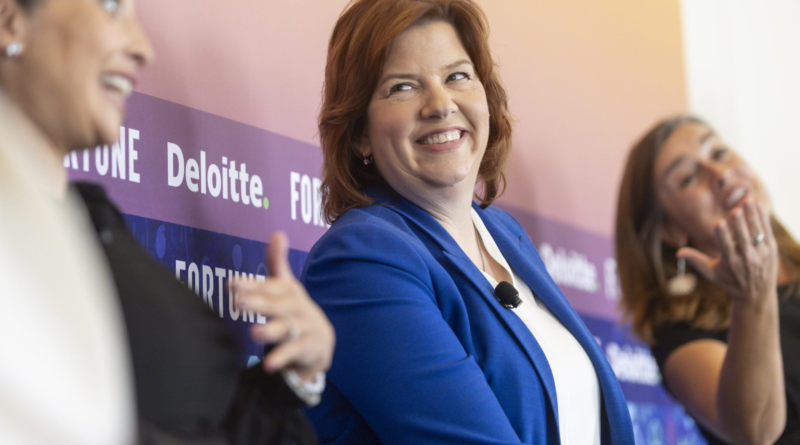The 100k+ club: High-earning women thank the sports of their childhoods
Elizabeth Lindsey grew up playing soccer, but when her family moved to a new town, there was no girls’ soccer team. The boys were “horrible to her,” said Lindsey, and refused to let her play on their team. So at the age of nine, Lindsey made a presentation to the city council to explain why she should be allowed to play on the boys’ team.
“And I won,” said Lindsey. “They let me play.”
The next year, Lindsey recruited three more girls to play soccer with her on the boys’ team and eventually, they splintered off and the girls got their own team. And because she dealt with those boys and grew up being told no more than she was told yes, Lindsey grew a thick skin that comes in handy as president of brand and properties at global sports marketing and talent management agency Wasserman. One past CEO got so angry with her that he threw a book at her head, recalled Lindsey, but she dealt with worse—a bunch of nine-year-old boys who spent an entire summer trying to make her life miserable.
“I’m 54 years old and I still think about these boys,” said Lindsey on Monday. She spoke at Fortune’s 2024 Most Powerful Women summit in Laguna Niguel, Calif. during a Deloitte-sponsored panel, How Investing in Women’s Sports Fosters Women Leaders.
All four panelists said their experiences playing youth sports during childhood formulated key characteristics that have given them an edge at work. A 2023 Deloitte survey of women and C-suite leaders found that 85% of 1,100 women surveyed reported that the skills they developed in athletics are key to their professional success. Among women in leadership roles, the figures rose to 91%, and among women who earn more than $100,000, 93%.
Lindsey was joined by Deloitte chair Lara Abrash, Ilona Aman, chief marketing officer at Athleta, and Sarah Robb O’Hagan, CEO of corporate wellness and fitness company Exos.
According to Abrash, sports is about learning to fail and coming back from it. Today, a lot of kids get a trophy, noted Abrash, but when you fail, you want bigger and better, she said. “You want to learn from it.”
Similarly, Aman said sports taught her what it felt like to lose.
“I hated the feeling of losing more than I loved the feeling of winning,” said Iona Aman. “I always wanted to solve for something because that sting of losing just felt so terrible, and it stuck with me for so long, versus the endorphins of winning in the moment that went away so fast.”
Robb O’Hagan said she was forced into sports as a child in New Zealand and she was pretty terrible.
“We were really bad,” she said. “But we had such an awesome team experience.”
Indeed, learning how to play on a team, execute a strategy, lift each other up, and come back from inexplicable failure all emerged after years in sports. Lindsey said she learned resilience, tenacity, self-reliance, and self-confidence that she relies on today. And she can tell when those around her in business grew up playing sports.
“They’re team players; they’re coachable; they take direction; they follow the rules,” she said.
Abrash said it boils down to grit, which she defined as that hard part on your elbow that gets built up. “You can’t teach someone grit. They’re not born with grit,” she said. “So these experiences, particularly for women who are often told they can’t do something, actually teaches them they can.”
The Broadsheet: Covers the trends and issues impacting women in and out of the workplace and the women transforming the future of business.
Sign up here.




